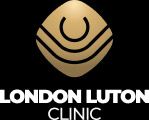Say Goodbye to Spots with These Acne Treatment Tips
Acne is more than just a teenage skin concern—it can affect people of all ages, making them feel self-conscious about their skin. Whether it's a few stubborn spots or severe breakouts, acne often disrupts confidence and can be tricky to manage. But with the right knowledge, skincare routine, and acne treatments, you can take control.
This comprehensive guide will help you understand acne, its types, and causes while detailing proven solutions—from effective lifestyle changes to prescription treatments available in the UK, including at our clinic in Luton.
Understanding Acne and Its Impact
Did you know that acne is one of the most common skin conditions, affecting approximately 80% of teenagers and many young adults? While it’s often dismissed as "just spots," acne can be physically uncomfortable and emotionally distressing, leading to issues like anxiety and low self-esteem.
The good news? Acne is manageable. With the right treatment plan tailored to your needs, you can improve your skin over time. Before that, though, it's essential to understand what triggers acne.
Types of Acne and Their Causes
Not all acne is the same. Understanding its type can help determine the best course of treatment.
1. Whiteheads and Blackheads
Cause: Clogged pores from a mix of oil (sebum) and dead skin cells.
Appearance: Whiteheads are closed pores, while blackheads are open with a dark, oxidised surface.
Treatment: Gentle exfoliation and salicylic acid-based products work well here.
2. Papules and Pustules
Cause: Pores become inflamed, leading to small red bumps (papules) or bumps filled with pus (pustules).
Appearance: Red, sensitive blemishes, with pustules having a white or yellow tip filled with pus.
Treatment: Benzoyl peroxide can help reduce inflammation and bacteria.
3. Nodules and Cysts
Cause: Severe blockages deep within pores, often due to genetics, hormonal imbalance, or bacteria.
Appearance: Large, painful lumps beneath the skin's surface.
Treatment: Prescription treatments like antibiotics or isotretinoin may be necessary.
Effective Skincare Routine for Acne-Prone Skin
Building a gentle yet effective skincare routine is crucial for acne management. Here’s what you need to include daily:
Morning Routine
- Cleanse with a gentle, sulphate-free cleanser to remove excess oil.
- Treat with salicylic acid (2%) or niacinamide to control sebum production.
- Protect with a non-comedogenic, broad-spectrum sunscreen to prevent irritation from UV rays.
Evening Routine
- Double-cleanse to remove makeup and grime; start with a cleansing oil, followed by your regular cleanser.
- Use a retinol or acne-specific serum, which helps cell turnover and unclogs pores.
- Moisturise with a lightweight, oil-free formula for hydration.
Pro tip: Avoid over-exfoliating or using harsh scrubs—they can worsen skin irritation!
Lifestyle Changes to Improve Acne
Your skin is often a reflection of lifestyle habits, so small changes can make a big difference.
1. Diet and Hydration
Reduce foods high in dairy and sugar, as they may trigger breakouts for some people.
Eat foods high in antioxidants like berries and greens.
Drink plenty of water for hydrated, plump skin.
2. Stress Management
Stress triggers hormonal imbalances, which can worsen acne. Incorporate activities such as yoga or meditation to remain calm and grounded.
3. Clean Your Surroundings
Change pillowcases frequently, as they collect oil and bacteria.
Keep phone screens clean to avoid transferring germs to your face.
4. Consistency is Key
Stick to your skincare routine and lifestyle changes consistently—results take time but are worth it!
Over-the-Counter Acne Treatments
For mild to moderate cases of acne, there are effective OTC treatments readily available in pharmacies.
1. Salicylic Acid
Unclogs pores and exfoliates the skin gently.
Found in face washes, toners, and spot treatments.
2. Benzoyl Peroxide
Kills acne-causing bacteria.
Available in different strengths, starting at 2.5%.
3. Sulphur-Based Treatments
Absorbs excess oil and reduces inflammation. Best used as a spot treatment.
4. Tea Tree Oil
A natural antimicrobial option with calming effects for acne redness.
Found in gels, serums, and masks.
Remember to patch-test any product before using it on your face to avoid irritation.
Prescription Medications You Can Get in the UK
If over-the-counter treatments don’t show significant results after several months, it may be time to consult a dermatologist. Our clinic in Luton can prescribe an acne treatment tailored to your skin’s needs.
1. Topical Retinoids
Vitamin A derivatives like tretinoin help unclog pores and encourage skin renewal.
2. Oral Antibiotics
Ideal for moderate to severe acne, these reduce acne-causing bacteria and inflammation.
3. Hormonal Treatments
For women with hormonal acne, options like oral contraceptives or spironolactone can help regulate hormone levels.
4. Isotretinoin (Accutane)
A powerful oral medication for severe cystic acne. Requires professional supervision due to potential side effects.
Book a consultation with our clinic in Luton to explore which medical treatment is ideal for you.
Achieving Clear Skin: A Holistic Approach
Acne may feel overwhelming, but a combination of knowledge, the right skincare routine, lifestyle changes, and prescription treatments can get you closer to clear, glowing skin. Each person’s acne and skin type is unique, so be patient and persistent as you determine what works best.
Looking for personalised acne treatment? Our clinic in Luton specialises in tailor-made solutions to help you achieve your skin goals. Book an appointment with our Pharmacists experts today!



